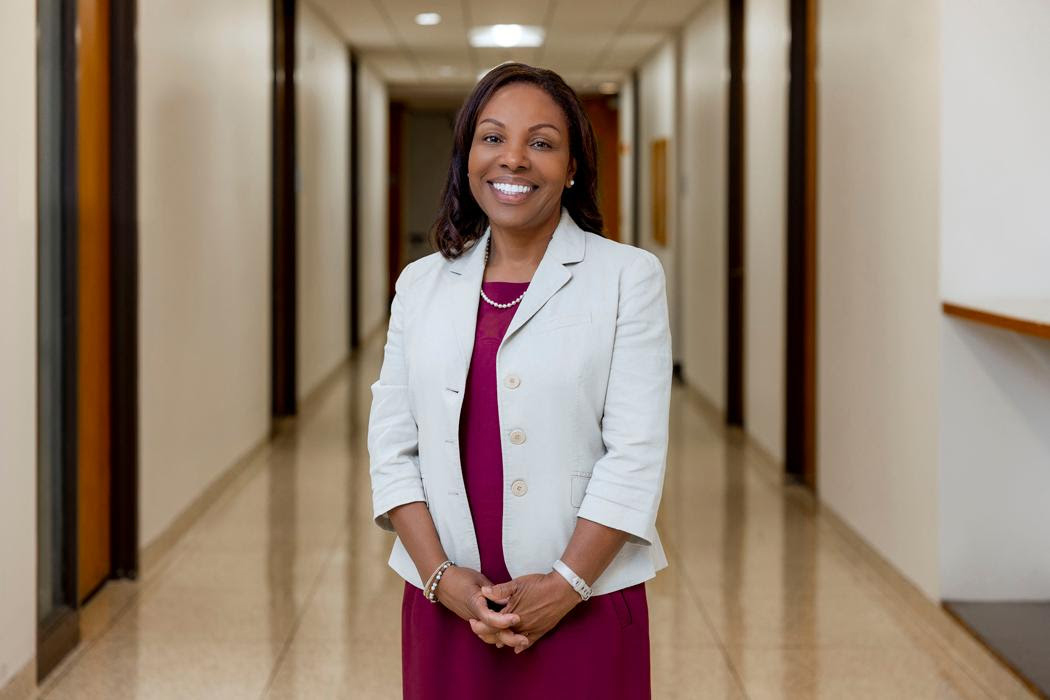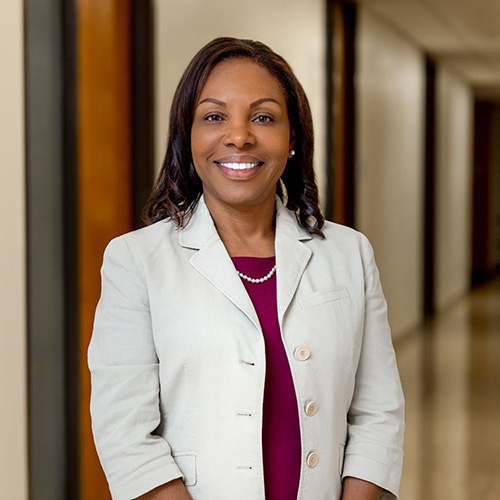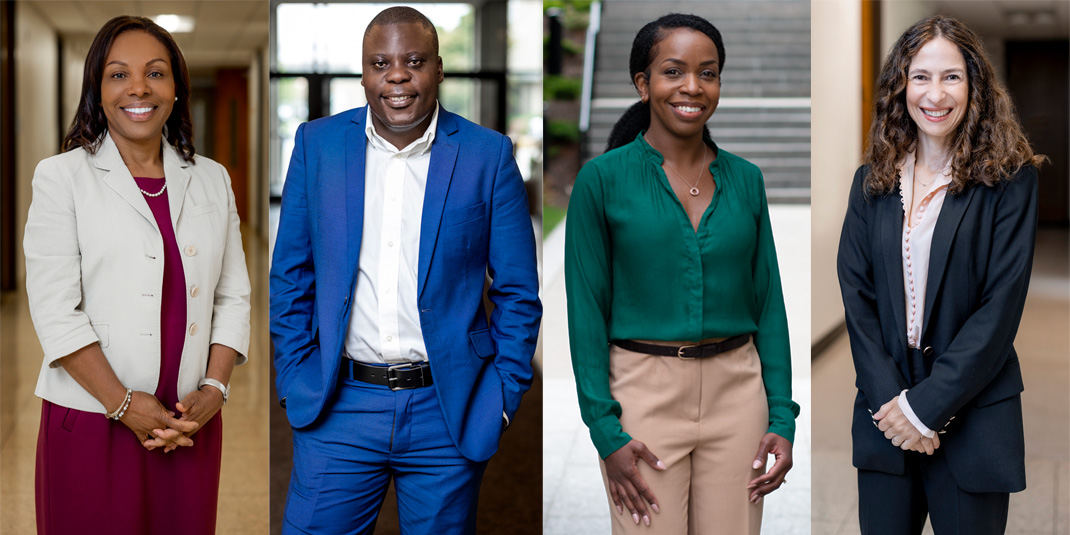
Karen Bullock. Photo by Caitlin Cunningham for BC Photography.
Ther are profound disparities in healthcare between Black and white people across the United States.
But Karen Bullock, the Louise McMahon Ahearn Endowed Professor at the Boston College School of Social Work, is on a quest to help reduce these stark inequalities.
Bullock presented her strategy at BCSSW’s annual Pinderhughes Diversity Lecture last Friday, a day after a new report from a nonprofit research group focused on healthcare issues found that Black people are more likely than white people to die before age 75 from preventable illnesses.
In her talk, Bullock contended that racial disparities in healthcare often occur when healthcare professionals lack awareness of, or consideration for, cultural and historical factors.
To help reduce these disparities, she argued that social workers should be required to have a baseline understanding of how to support patients with diverse values, beliefs, and behaviors.
And she underscored the need for practitioners to factor patients’ lived experiences into their assessments, with the end goal of providing care that meets their social, cultural, and linguistic needs.
This skill is called cultural competence, one of the ethical standards described in the National Association of Social Workers’ Code of Ethics.
“Cultural competence can be actionable, measurable, and achievable,” Bullock told students, faculty, staff, and alumni who attended the lecture, which took place on Zoom. “It enables practitioners to effectively apply awareness, specialized skills, and knowledge that can guide observable practice behaviors.”
Bullock said that culturally competent social workers are particularly needed to address structural and systemic racism in the care of older adults with incurable illness and disease—a topic that she’s studied for more than 25 years.
Research published in JAMA Network Open in 2020 showed that older Black adults use hospice services at a far lower rate than their white counterparts, citing a general mistrust of the healthcare system as a primary barrier to hospice use.
A comprehensive literature review, conducted at the height of the COVID-19 pandemic, revealed that seriously ill Black patients are less likely than white patients to have their pain properly treated, diagnosed, or managed.
And one of Bullock’s most cited studies, which won the Best Article Award from Routledge Journals in 2012, found that structural racism prevented older Black adults in Hartford, Connecticut, from accessing end-of-life care at their local hospital.
Through focus groups, Bullock discovered that their resistance to seeking care from the hospital in their own neighborhood was rooted in their memories of the past, when that facility was segregated and they were not allowed to go there.
Legally sanctioned racial segregation in hospitals ended with the Civil Rights Act of 1964. But many older Black people remember a time when they were barred from receiving treatment from hospitals in their own communities—a legacy of racism that continues to affect their attitudes toward the U.S. healthcare system today.
“ Cultural competence can be actionable, measurable, and achievable. It enables practitioners to effectively apply awareness, specialized skills, and knowledge that can guide observable practice behaviors. ”
“We know that racism in the U.S. was legal and it was lethal,” said Bullock, who recently won a major award from the American Academy of Hospice and Palliative Medicine for her commitment to improving care for diverse, vulnerable, and underrepresented patient populations. “Many people died while waiting to receive care or because care was not available in their communities. Many people witnessed loved ones being turned away from healthcare systems because of their race.”
Bullock advised social workers to resist the urge to dismiss older Black patients who reject hospice care, saying people in the helping profession should refrain from compelling patients to do things that are inconsistent with their cultural preferences.
Instead of making assumptions about older Black patients based on their choices, she said, social workers should learn the history behind their reluctance to use hospice services. Armed with this knowledge, she said, they will have a better chance of understanding their patients’ decisions and providing the best care.
“In our evidence-based practices, it is important for us to think about the cultural aspects and implications of our frameworks and our methods,” said Bullock. “As we work with older adults,” she added, “we really need to think about racism as a traumatic experience.”
She recommended social work curriculums include the topic of race, medicine, and healthcare in the U.S.
“For those of us teaching in the area of healthcare, are we teaching this content?” she asked rhetorically. “Are we competent in these areas to be able to teach about these atrocities and to teach our students or even our colleagues when we are facilitating workshops and trainings?”
Bullock credited the pioneering work of the lecture series’ namesake, Professor Emerita Elaine Pinderhughes, with helping her find her professional calling. Her seminal research, published in the 1980s, revealed that race, ethnicity, and power strongly influence how social workers interact with clients.
“I can say that I feel that I stand on your shoulders,” Bullock told Pinderhughes, who attended the virtual lecture. “I have been reading your work and citing your work since I was a BSW student, and to be the Pinderhughes lecturer for 2024 feels like I’ve come full circle.”
Pinderhughes praised Bullock’s talk. “I am impressed with the extent of your knowledge, the dedication that you have for the material, and I want to wish you success in your future endeavors.”



